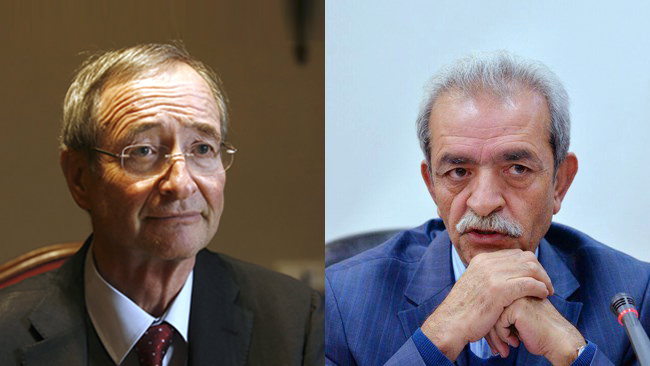President of Iran Chamber of Commerce, Industries, Mines and Agriculture (ICCIMA) has called on European national and local chambers of commerce to ask their governments to defy Washington’s anti-Iran sanctions amid the outbreak of the novel coronavirus.
In a letter to Christoph Leitl, president of the Association of European Chambers of Commerce and Industry (Eurochambres), Gholam Hossein Shafei denounced the US sanctions against Iran as a flagrant violation of the most fundamental humanitarian principles saying that the sanctions have seriously hindered efforts in Iran for procuring medicine and medical equipment required for fighting the COVID19.
He called on those chambers of commerce which take their social responsibilities seriously to put pressure on their governments in accordance with their social mission to improve the situation for the Iranian people by mitigating the impact of unlawful US sanctions, especially those related to the importation of medicine and medical equipment.
The letter comes as Iran is trying to contain the new coronavirus outbreak that has affected nearly 15,000 people since it was spotted in the country on February 19. The pandemic has killed over 850 people in the country while nearly 5,000 have recovered.
US authorities have claimed that their sanctions on Iran, enacted since November 2018 and months after Washington pulled out of a nuclear agreement with Iran, have not affected the trade of humanitarian goods.
However, international organizations and governments have asked the US to lift its bans and allow Iran to access the medicine and medical gear it needs to fight the new coronavirus.
Tehran further sued Washington at the International Court of Justice afterwards. The tribunal ruled that the US should lift its sanctions on humanitarian supplies.
“I have the strong impression that humanitarian issues are of great importance to you,” Shafei said in his letter to Leitl. “However, this positive impression is accompanied by an expectation that you ensure the supply of medicine and medical equipment and devices to Iran through negotiating with European Chambers of Commerce and informing them of the situation.”

In a letter to Christoph Leitl, president of the Eurochambres, (left) Gholam Hossein Shafei, president of Iran Chamber of Commerce, called on European national and local chambers of commerce to ask their governments to defy Washington’s anti-Iran sanctions amid the coronavirus outbreak.
Eurochambres represents over 20 million businesses in Europe through 46 national and transnational associations of chambers of commerce and industry and a European network of 1700 regional and local chambers.
In another letter last week to Paul Polman, chairman of the International Chamber of Commerce (ICC), president of ICCIMA, which represents the private sector in Iran, further asked for arrangements through international business community and members of the organization to contribute to Iran’s efforts to contain the pandemic.
The ICC later issued a call for G20 leaders to agree on coordinated steps to “ensure access to essential medical supplies, scale public health financing to tackle COVID-19 and restore confidence and stability in the global economy”.
Iran has received 7.5 tonnes of medical equipment including 1,000 lab kits for diagnose of the virus cases from the World Health Organization (WHO) and another batch of 4.5 tonnes of supplies including high-filtered masks, gowns and surgical goggles for health-care personnel from The United Nations Children's Fund (UNICEF).
The country, however, needs more as it is unable to buy equipment overseas due to US sanctions.